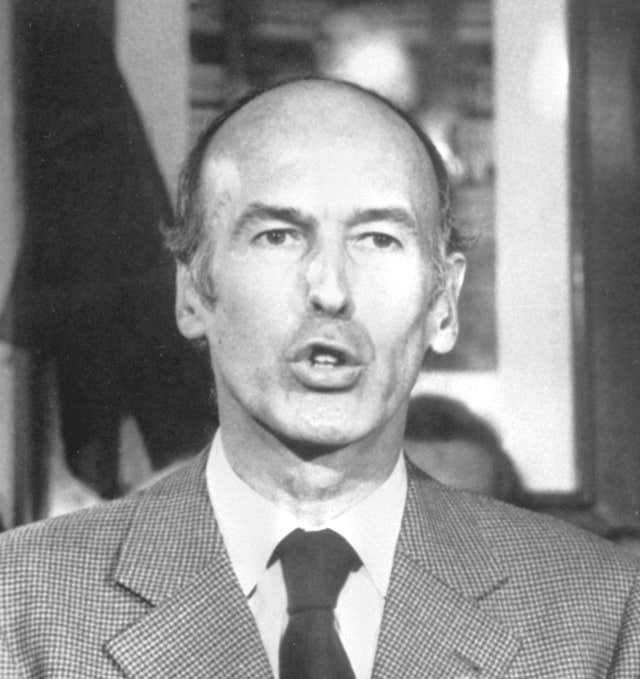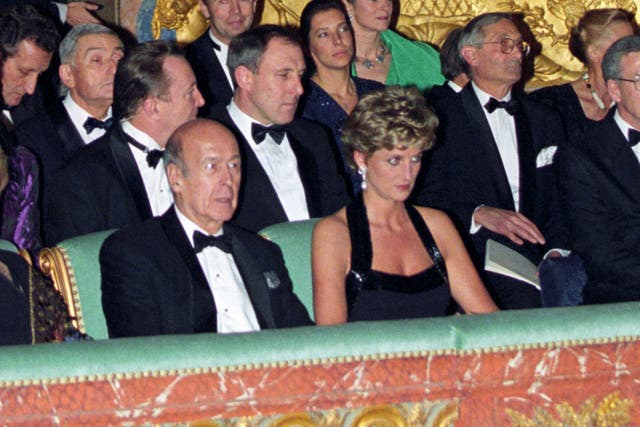Valery Giscard d’Estaing, the former French president who deeply lamented Brexit and wrote a novel hinting at an affair with Princess Diana, has died aged 94 after contracting Covid-19.
In a statement on Twitter, the Valery Giscard d’Estaing Foundation said he died at his home in the Loir-et-Cher region of central France following a short stay in hospital.
The statement added: “In accordance with his wishes, his funeral will take place in the strictest family intimacy.”
Born in 1926, Mr Giscard d’Estaing served as president of France between 1974 and 1981, with the legalisation of abortion and divorce by mutual consent among his most significant achievements in office.
Strongly pro-Europe, Mr Giscard d’Estaing developed a close friendship with former German Chancellor Helmut Schmidt, with the pair helping pave the way for the establishment of the euro single currency.

Mr Giscard d’Estaing had recently been vocal about his “great regret” over Britain’s decision to leave the EU, telling The Associated Press in January: “Europe was a means to develop a stable and efficient system, respectful of political and economic rules.
“It was an important project, and Brexit is the first step backwards.”
Mr Giscard d’Estaing also caused a literary storm in 2009 by writing a novel detailing a fictional romance between a thinly disguised Princess of Wales and himself. Mr Giscard d’Estaing met Diana on a number of occasions.
The Princess And The President is based around a secret affair between Patricia – or Lady Pat – Princess of Cardiff, and President Jacques-Henri Lambertye, the book’s narrator.

The Princess is in a loveless marriage while the French leader is a widow and the pair meet at Buckingham Palace during a G7 dinner.
In the book Lady Pat echoes Diana’s famous 1995 television admission that “there were three of us in this marriage” – a reference to Camilla Parker Bowles, the then mistress of her husband the Prince of Wales. Lambertye seduces the royal after they attend events to commemorate the Second World War D-day landings and the affair takes place on both sides of the English Channel in palaces and chateaux.
A cryptic message Mr Giscard d’Estaing wrote at the beginning of the book – “Promise kept” – added to the speculation the story may have an element of truth.
At the end of the book, he wrote: “You asked my permission for you to write your story,” she told me. “I give you it, but you must make me a promise…”

Mr Giscard d’Estaing was also accused earlier this year of sexually assaulting a female German journalist during a 2018 interview, though he denied the allegation.
Tributes after the announcement of Mr Giscard d’Estaing’s death were led by former French president Nicolas Sarkozy, who wrote on Twitter that he “succeeded in modernising political life”.
Meanwhile, the president of France’s National Assembly, Richard Ferrand, called Mr Giscard d’Estaing a president who brought “modernity and daring” to the country.
Pour Valéry Giscard d’Estaing, l’Europe devait être une ambition française et la France une nation moderne . Respect pic.twitter.com/dvmL29cqr7
— Michel Barnier (@MichelBarnier) December 2, 2020
The EU’s chief negotiator Michel Barnier said on Twitter: “For Valery Giscard d’Estaing, Europe needed to be a French ambition and France a modern nation. Respect.”




Comments: Our rules
We want our comments to be a lively and valuable part of our community - a place where readers can debate and engage with the most important local issues. The ability to comment on our stories is a privilege, not a right, however, and that privilege may be withdrawn if it is abused or misused.
Please report any comments that break our rules.
Read the rules here